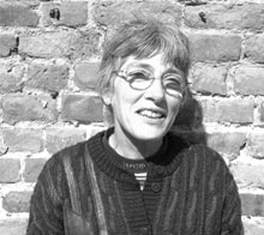Depiction of a NegroI attended schools in Australia from 1948, as a Jewish refugee child from Budapest. The only history of Australia we were taught was of the brave British explorers. The focus was on the glories of Britain, with some European history. I did not even know of the existence of Australian Aborigines. For reasons not relevant here, I went to work in Port Moresby, New Guinea when I was 20. That was my introduction to racial discrimination. As someone who had suffered from that in Budapest, I was both furious and heart-broken. Surely, we are all the same, I believed. Of course, I had known nothing about the peoples of New Guinea; even the word ‘colony’ was unknown to me.
After six months there I returned to Sydney, found a job and went to university as an evening student as I wanted to learn about the world opened to me by my New Guinea experience. I also wanted to learn about the Australian Aborigines. University proved more of a brain-washing experience than an education. But I did get involved in the Aborigines’ struggles. Five years at university; then a job to earn enough money to migrate to the glorious Mother Country in 1965. But it proved to be anything but glorious. There was some social class discrimination in Sydney, but nothing like what I experienced when I began to teach infants/primary schools in Haringey. I was very very dismayed, shocked. Social class does not influence your ability, your intelligence – all pupils should be treated the same, I believed. (And still believe.) Even more shocking to me was the racial discrimination. I was asked to teach English to immigrant children in an Infants School. I had expected a class of Turkish Cypriots but found in front of me a class of dark-skinned children. All spoke English, but certainly with an accent different from mine and from the Haringey locals. I told the headmistress this. The response was that they were all ‘disturbed’. As one of the subjects of my degrees was psychology, this also bewildered me: the children were certainly not ‘disturbed’. I began to ask questions from many people, including the parents coming to pick up their children. So I learned about immigrants from the West Indies, and some West Indian history, and about their experiences of discrimination on arriving in the Mother Country. I did not even know where the ‘West Indies’ was! Searched for maps and histories. Very very few in the local libraries. Certainly nothing about why these families had come to England. Moving to teach in a Comprehensive high school, I had the same experience, including the ignorance of my fellow teachers about our Black pupils’ histories. And the Black pupils were all put in in what were then the ‘lower streams’ – ie, they were inherently stupid. And also the same social class discrimination! I taught mainly ‘lower stream’ pupils and as my treatment of them was somewhat different from how other teachers treated them, I was just about ostracised by my ‘colleagues’. For me the most significant experience was while I was on playground duty on the day the school had been celebrating ‘VE Day’ – that is, ‘victory in Europe during WWII’. A group of White kids began to name-call the Black kids, abusing them as their parents had not contributed to this victory, so what were they doing here? Eventually a fight developed, so I had to step in and separate them. And I told myself the Black kids had to learn of their parents’ contributions – ‘you have to fight with knowledge, not your fists’! So I waited for books to appear from historians. But none did. So I just had to figure out how to research at least some aspects of the history of WWII That’s what my first book was about. (Many Struggles (West Indian Workers and Service Personnel in Britain 1939-1945), Karia Press, 1985) But while researching that, the painting of John Blanke made its appearance. So there had been Africans in Britain way before these West Indians arrived! My mind boggled! Where is all this history? When Peter Fryer’s book, Staying Power appeared, I read and read and read. I realised that so much more of the history of peoples of African (and Indian) origins/descent had to be unearthed. So that is what I have bene doing since then. Thank you John Blanke! (And Peter Fryer) Marika Sherwood Writer and Historian |
| The John Blanke Project | marika sherwood |
